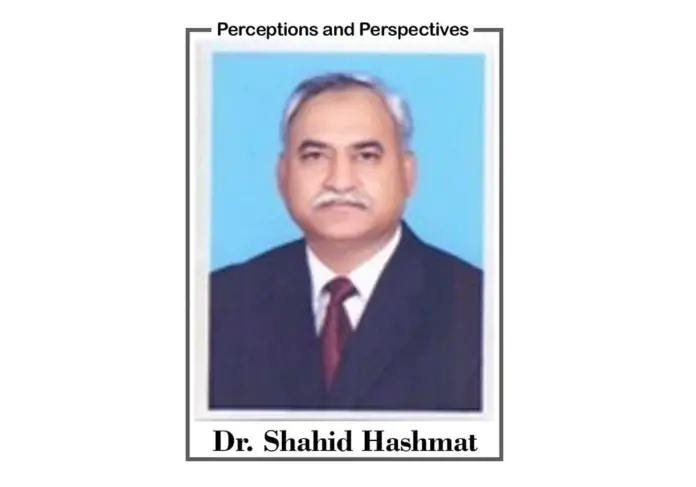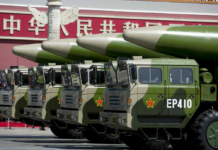Long awaited elections are eventually over. Have these elections led us towards strengthening democracy and achieving stability in Pakistan? Or the elections have caused more chaos and further polarization in a society that is already divided and fragmented? A lot of skepticism does exist among most analysts. Elections are conducted to ascertain the will of the masses regarding the choice of their political leadership. Genuinely elected leaders are expected to make decisions and policies for the greater public good under the aspirations of the masses. Politics, in its essence, revolves around differences of opinion and choices. Therefore, some level of conflict and disagreement is unavoidable. However, such differences must end at some stage if an election is conducted in a fair, free, and transparent manner.
All civilized societies and systems have evolved mutually accepted and internationally recognized processes and procedures to resolve and adjudicate election complaints. The key is the credibility of the organization that conducts the elections and the integrity and reliability of those institutions that will judge and resolve the complaints. Despite a lapse of two weeks, many election results are yet disputed and contested. A large number of results announced by ECP have been challenged. Leaving aside PML-N, PPP, and MQM, all parties have leveled serious allegations against Returning Officers (ROs) for tempering with the final results. Notwithstanding the accusation of PTI regarding massive, systematic, and organized rigging, many political parties, including Jamaat i Islami, JUF-F, ANP, BNP, PKMAP, and GDA, are protesting against rigged elections. Even, some defeated candidates of PLM-N, PPP, and MQM, have also lodged complaints that they lost their seats due to rigging.
The primary contention of PTI and other parties is that election results were tempered by the ROs while preparing Form 47s. Form 45s are prepared by the Presiding Officers (POs) on the conclusion of the election. After counting of the votes in the presence of polling agents of all candidates, these forms dully signed by POs are submitted to ROs for compilation of results of each constituency. Candidates of PTI and other parties complain that the results prepared by the ROs on Form 47s do not tally with Form 45s. Rather, there are gross discrepancies and inconsistencies. The issue is not that complicated if no malafide intentions are involved. An independent forensic audit of all such disputed Form 47s can resolve the disputes.
The complaints of rigging are not few at isolated constituencies. Rather, these are widespread and too many. On top of it ‘confessions of political hitman,’ as revealed by former Commissioner of Rawalpindi Division, have further strengthened the claim of candidates who are asserting that election results were changed in the darkness of night. The former Commissioner’s open admission of his omissions and commissions for facilitating and abetting the rigging of elections and changing the results of the national assembly and Punjab assembly constituencies is a serious matter. Such disclosure by a very senior and highly experienced civil service officer should not be brushed aside. The situation demands very urgent action because he has also labeled some serious accusations against two senior heads of two constitutional institutions. Though ECP has initiated an inquiry, the gravity and severity of these allegations, and other election complaints, merit a high-powered investigation by a judicial commission headed by a judge of the SC with a high court judge from each province as its members.
ECP has refuted all complaints of rigging and inordinate delays or mismanagement of election results. However, many international observers have highlighted serious shortcomings in the conduct of free, fair, and transparent elections. More worrying in the statement issued by the Secretary General of the UN is quite unpreceded. Our Foreign Office declaration, by adopting denial mode, that elections are exclusively our internal matter will not work well. These observations have global resonance. ‘The Free Fair and Election Network (FAFEN) and the Human Rights Commission of Pakistan (HRCP) have also issued their reports on the fairness and credibility of elections. FAFEN has suggested a three-pronged strategy to resolve the election disputes through an independent audit of the poll results. The most serious critique of the elections has come from the Senate of Pakistan. Few senators have demanded extremely harsh punitive action against CEC and another official of ECP for their failure to conduct free, fair, and transparent elections.
While nationwide protests against manipulation in election results are escalating, PML-N and PPP have announced their agreement to form a coalition government at the center, along with MQM’s support. PPP is neither joining the federal cabinet nor will accept any such position in Punjab. However, PPP has demanded constitutional slots, including the coveted position of President of Pakistan, Chairman Senate, Speaker National Assembly, and governors in two or three provinces. Similarly, MQM will also make a good bargain. PML-N has no choice but to accept these demands and a few more in the future as well. Indeed, this would be a PDM 2.0 (or 3.0) arrangement, leaving aside some old PDM partners who are also protesting against the election results. PTI-backed elected members of the parliament, having lost their identity and cohesiveness as a legally accepted political party, have been forced to join the Sunni Itehad Council, which ironically does not have even a single elected member of the national assembly. They had no other choice but to get their legitimate proportionate share of reserved seats for women and minorities. It must be kept in mind that PTI claims that it has already been denied 75 to 80 seats in the national assembly due to ROs’ manipulation of election results. Under such circumstances of bitterness and acrimony, PTI will join the parliament and act as opposition.
Will the formation of a weak government, which will remain continuously vulnerable and susceptible to political blackmail/extortion, will be able to take the nation out of ever-increasing and multiplying crises? Political analysts are at a loss to find out the commonality of political ideology and governing philosophies among PML-N, PPP, and MQM. Their public positions about each other are well known. Though our collective memory is too short, their pronouncements about each other’s leadership still resonate in voters’ minds. What brings them together is political expediency, convergence of self/group interest, and lust for power. Pakistan is passing through an existential crisis. Challenges are too daunting and many: perpetual political instability; continuous economic meltdown; ever-increasing foreign and domestic debt; internal discords and conflicts; provincial disagreements, sectarian disharmony, and terrorist threats. On top of these challenges, fulfilling the excruciating demands of the IMF will ask for greater internal political consensus and financial discipline. It remains a tall order for a compromising government, in the face of soaring demands of hesitant and opportunity exploring political partners.
We can only wish, hope, and pray that stability and peace prevail in Pakistan allowing economic progress so that the exhausted and bruised nation can feel some relief. Unless grievances and complaints of election rigging are resolved in a respectable, honorable, ethical, legitimate, and satisfactory manner, the political storm will neither subside nor settle down. Earlier sanity, rationality, and wisdom take over personal interests and unbridled ambitions, it is in the national interest to unite, reconcile, and live in peace and harmony.







